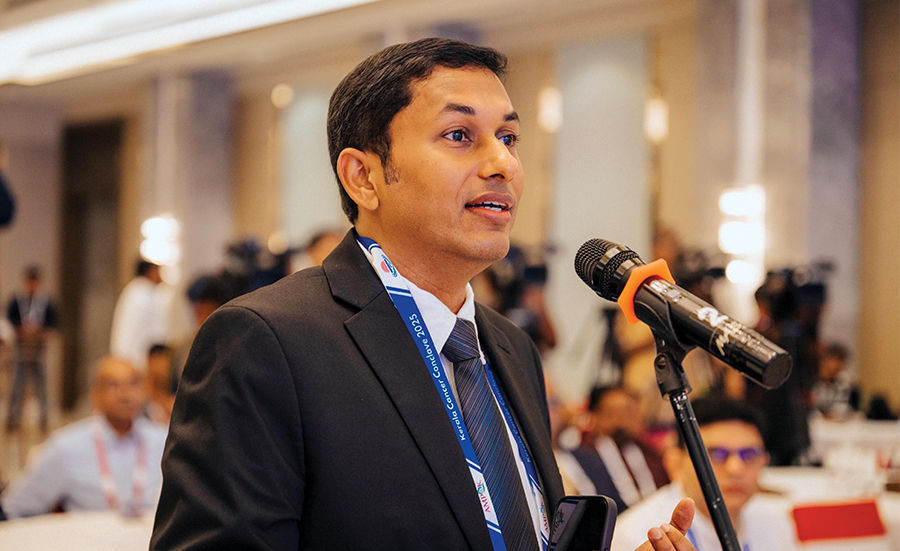In an interview with Medical Tourism Today, Dr. Aju Mathew, an internationally trained Oncologist, discusses the evolving landscape of cancer care in India and abroad. From breakthroughs in targeted therapies and diagnostics to India’s unique healthcare strengths, he highlights opportunities, challenges, and the vital role of prevention and awareness in reducing the global burden of cancer.
———————————–
Dr. Aju, you trained and earned recognition in the United States before moving to India. What are the biggest differences you’ve observed between cancer care delivery in the U.S. and India?
The U.S. has wide availability of the newest high-cost treatments and diagnostics (molecular profiling, many FDA-approved targeted drugs, cellular therapies), but access is uneven because of cost, insurance fragmentation, and system complexity. In India, care is much more heterogeneous: a few centres (public and private) deliver world-class, affordable care, while many areas lack basic oncology services — so access and out-of-pocket costs are the main challenges. Treatment choices in India are frequently constrained by affordability and travel; patients and families often weigh these factors heavily. In the U.S., cost is still decisive but is mediated by insurance and coverage patterns.
What are the most promising recent developments in medical oncology that excite you the most?
The most promising developments in oncology include antibody–drug conjugates (ADCs), which are becoming increasingly effective with expanding indications and better tolerability, especially when used in combinations that show improved responses; bispecific antibodies and next-generation immune therapies, including novel immune-stimulating antibody constructs, which hold promise in both hematologic cancers and selected solid tumours; cellular therapies such as CAR-T and other next-generation approaches, which are rapidly maturing for blood cancers with lineage-directed strategies and adaptations for solid tumours underway; and liquid biopsy along with other highly sensitive diagnostics, which provide better tools for early detection, monitoring minimal residual disease, and guiding therapy decisions.
From your perspective, what unique advantages does India, and particularly Kerala, offer for international patients seeking cancer treatment?
India offers cost-effective cancer care with high levels of expertise, as several tertiary centres deliver internationally competitive outcomes at substantially lower costs than many Western institutions. Patients also benefit from rapid access and consolidated services, with shorter waiting times for diagnostics and treatment scheduling. Kerala, in particular, stands out for its high literacy and health awareness, robust primary health network, well-organized cancer care system, and expanding medical-value tourism infrastructure, making it an attractive destination for patients seeking advanced oncology care.
Breast cancer is one of your key research areas. What are the essential precautions and screening tests women should undergo for early detection of breast cancer, and could you briefly explain the main procedures used for diagnosis and treatment?
Risk assessment for breast cancer begins with understanding one’s personal and family history, including first-degree relatives with breast or ovarian cancer; individuals at high risk should be referred to specialists for earlier and more intensive screening. For women at average risk, I always recommend self-breast examination as an important screening method. If a suspicious lump is detected, mammography, MRI, and biopsy are key tools for diagnosis.
What are the warning signs or symptoms that women should never ignore when it comes to breast health?
Any changes in the appearance or feel of the breast must not be neglected.
What are the key lifestyle and genetic risk factors for breast cancer that patients should be most aware of?
Some women may have hereditary risk — they must be aware of breast or ovarian cancer in their family and discuss this with their doctor. Unhealthy lifestyle choices, poor diet, smoking, and alcohol use also increase the risk of breast cancer.
Could you briefly explain the most recent cutting-edge technologies and treatments for breast cancer available in India?
Targeted therapy options have significantly improved the effectiveness of cancer treatment in India. These include ADCs, immunotherapies, and precision-targeted medicines.
Where do you see the future of cancer care heading in the next 10 years, both globally and in India?
The increasing use of targeted therapies and immunomodulatory drugs will improve cure rates. Greater sensitivity in early cancer detection will be aided by genomic advancements.
Given India’s rising cancer incidence, what preventive measures do you believe are most effective in reducing disease burden?
We must focus on a healthy lifestyle as the most important preventive measure.
What message would you like to share with international patients considering India for their cancer treatment?
India can offer high-quality care at much lower cost, with experienced multidisciplinary teams, fast access to diagnostics and treatment, and many internationally accredited centres. Kerala adds the advantages of strong public health infrastructure, skilled clinicians, and a supportive environment.
====================================
Dr. AJU MATHEW
———————
Dr. Aju Mathew is an internationally trained medical oncologist and hematologist, recognized for his expertise in advanced cancer care and patient-centered treatment. He holds an MBBS from Trivandrum Medical College, an MD from the United States, and an MPhil from the University of Cambridge. He is a Diplomate of the American Board in Medical Oncology, Hematology, and Internal Medicine, and a Fellow of the American College of Physicians (FACP).
Board-certified by the American Board of Internal Medicine in Internal Medicine, Hematology, and Medical Oncology through the University of Pittsburgh, Dr. Mathew brings global standards of oncology care to India.
He currently serves as Consultant at Ernakulam Medical Centre and MOSC Medical College, Kolenchery, Kerala. In addition, he is Senior Medical Advisor at Karkinos Healthcare and Director of Kerala Cancer Care, Kochi (www.keralacancercare.com), where he focuses on providing accessible and high-quality cancer treatment. He also contributes to palliative medicine as an Honorary Consultant at the Trivandrum Institute of Palliative Sciences.
With his extensive clinical experience and leadership roles, Dr. Aju Mathew is at the forefront of advancing oncology services in India, combining world-class expertise with a commitment to improving patient outcomes and access to care.
